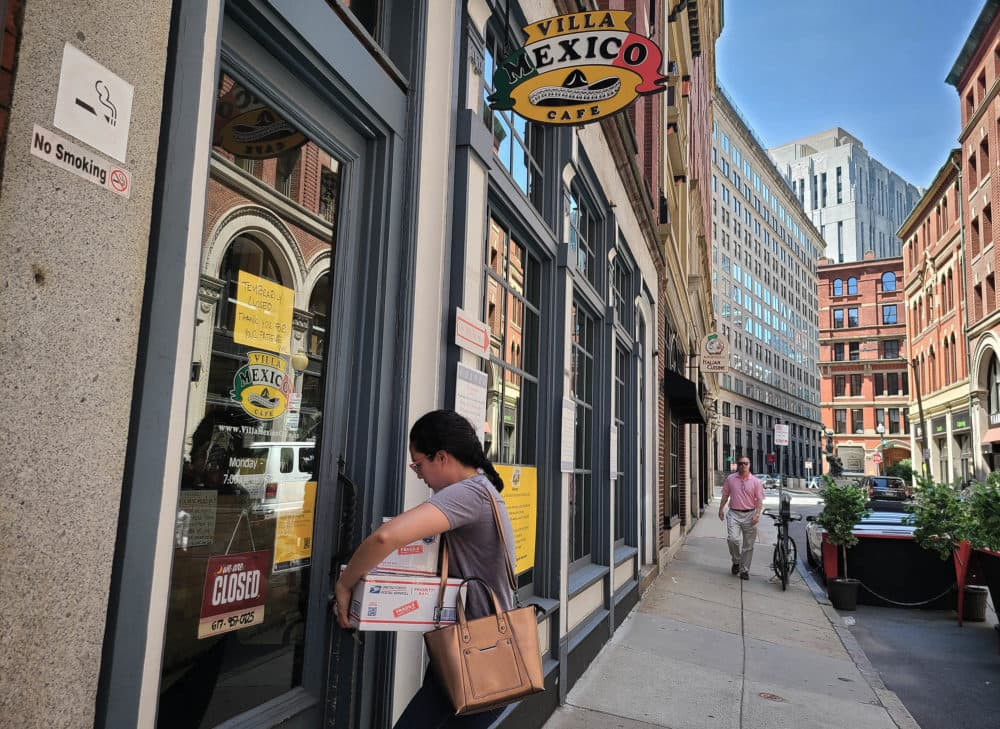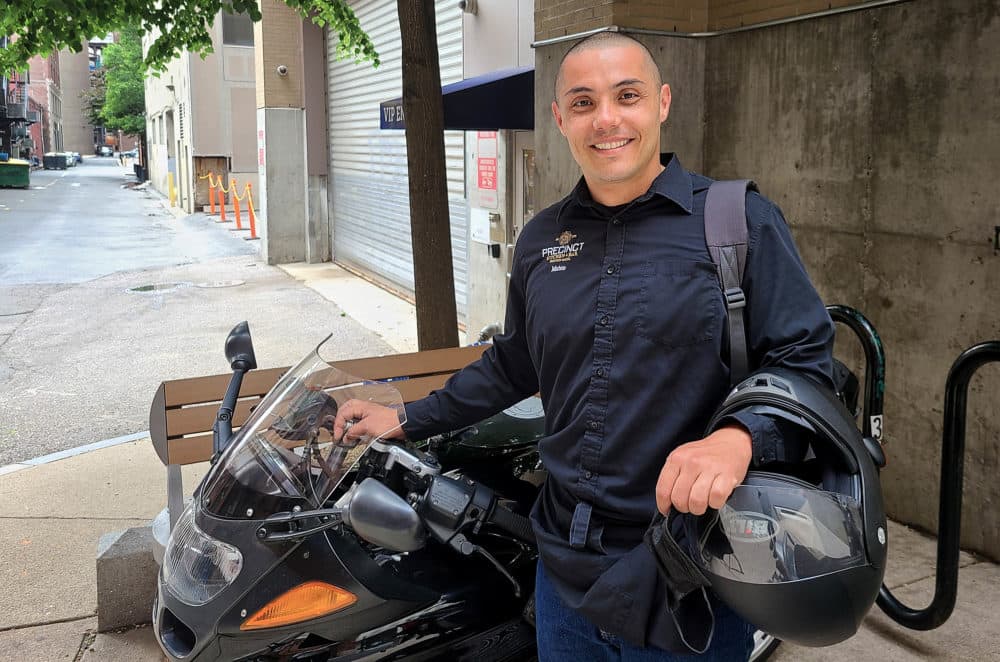Advertisement
With Workers In High Demand, Some Mass. Employers Try Incentives To Boost Their Workforce
Resume
Traducido en español por El Planeta Media.
Mateo Mejia arrived with a smile on his face for a recent shift as a server at a French bistro in Chestnut Hill. He’s new to the job, and it pays so well he’s been able to cut back his hours to spend mornings at home with his young daughter.
“Workers in the food and beverage industry are at an advantage right now because there are plenty of places hiring,” Mejia said. “You can pretty much walk into any job, pick whatever you want to do and pick your schedule.”
In the 20 years he’s worked in the restaurant industry, Mejia said this is the first time he’s seen employees enjoy this kind of flexibility.
With the pandemic receding and customers returning, service industry workers are in high demand. Many businesses want to reopen more fully or return from hiatuses taken during COVID. At the same time, many workers in the hospitality industry are not yet returning to work.

The shortage of workers is not unique to Massachusetts, and it’s driving up wages. The average national hourly pay for workers in the leisure and hospitality industry jumped 4% since February, to $18.09, according to the U.S. Bureau of Labor Statistics.
“Everybody wants to come out, everybody wants to eat, everybody wants to get back to normal life. But there's not enough people to serve, cook, wash dishes, prep, do all those things,” said Nick Calias, culinary director at Lyons Group, a company that owns 21 restaurants in New England and Chicago.
To address the shortage, the company is offering new incentives to lure employees, including higher wages and added benefits like 401k accounts, health insurance and a $1,000 bonus for workers who refer new hires to the company.
But despite all of this, it has been difficult to fill positions left vacant because of COVID-19. Calias is finding that many restaurant workers left the industry or decided they can afford to stay out of the workforce longer.
“Getting them back to work is going to be hard,” Calias said. “You're going to have to pay more, offer new opportunities for growth and maybe do different things that you weren't going to do.”
Larger companies, like Amazon, Chipotle or McDonald’s, are trying to attract workers with higher wages and retention bonuses. On Cape Cod, Stop & Shop supermarkets and some restaurants offer housing for seasonal employees.
But the cost of these extra incentives is challenging for small businesses like restaurants that tend to operate on tighter margins. Some owners even worry the shortage of workers will push them over the edge.
“If COVID didn't close us, the lack of workers will,” said Bessie King, the co-owner of Villa Mexico Cafe, a family-operated restaurant in Boston's Financial District.
Her restaurant stayed open through the pandemic, but she decided to shut it down two weeks ago because she doesn’t have enough staff to serve the growing clientele.
“If COVID didn't close us, the lack of workers will."
Bessie King, the co-owner of Villa Mexico Cafe
The restaurant, which used to pay employees $15 per hour, is now offering up to $22 an hour. Still, King and her partner are not receiving any job applications.
“It really is an employment catastrophe right now,” King said. “If you ask any restaurant owner, they're going to tell you they're short staffed.”
King is hoping to be able to reopen the restaurant soon.
Economists point to a combination of factors that may be stopping workers from returning to the labor force. Those include childcare duties, concerns about coronavirus exposure, health complications for COVID long-haulers and career changes.
In addition, some workers may be waiting to re-enter the job market until the end of higher unemployment benefits, which were instituted during the pandemic. The added benefits expire in early September.
For King, the next few months feel pivotal, particularly as a small business owner trying to survive in a challenging industry.
“Come September, there's going to be less restaurants around, more chains around because they do have the big bucks nationally,” King said. “And what's going to happen to us as owners? Where are we going to go? What are we going to do for a living?”
It is difficult to predict how long the shortage of workers will last, according to David Autor, a professor of labor economics at MIT. But he sees this phenomenon as a good thing for the economy.
“It would be in many ways beneficial to see labor standards, job quality rise for a large fraction of U.S. workers,” Autor said, adding that demand for workers means better work opportunities for the people who most need it, including workers with criminal histories or physical limitations.
Autor acknowledges the burden this adds for employers, especially small business owners, who may need to raise prices to pay for better wages and other benefits.
“Hopefully, they will attract workers,” he said. “Those workers will be productive, customers will be willing to pay someone higher prices to cover those costs. And they will continue to get by.”
One big question is whether this could signal the start of a more permanent shift in the balance of power between employer and employee. The answer is “nobody knows,” Autor says.
So, restaurant server Mateo Mejia is urging other workers to take advantage of the hot jobs market — while it lasts. And he has a message for restaurant owners, too.
“It's not all about a shift drink and a free meal and working you to the bone,” he said. “Good employees bring you money. They add to the bottom line. They build clientele. They're great for your business.”
Tibisay Zea is senior reporter-editor at El Planeta.
This segment aired on July 1, 2021.
